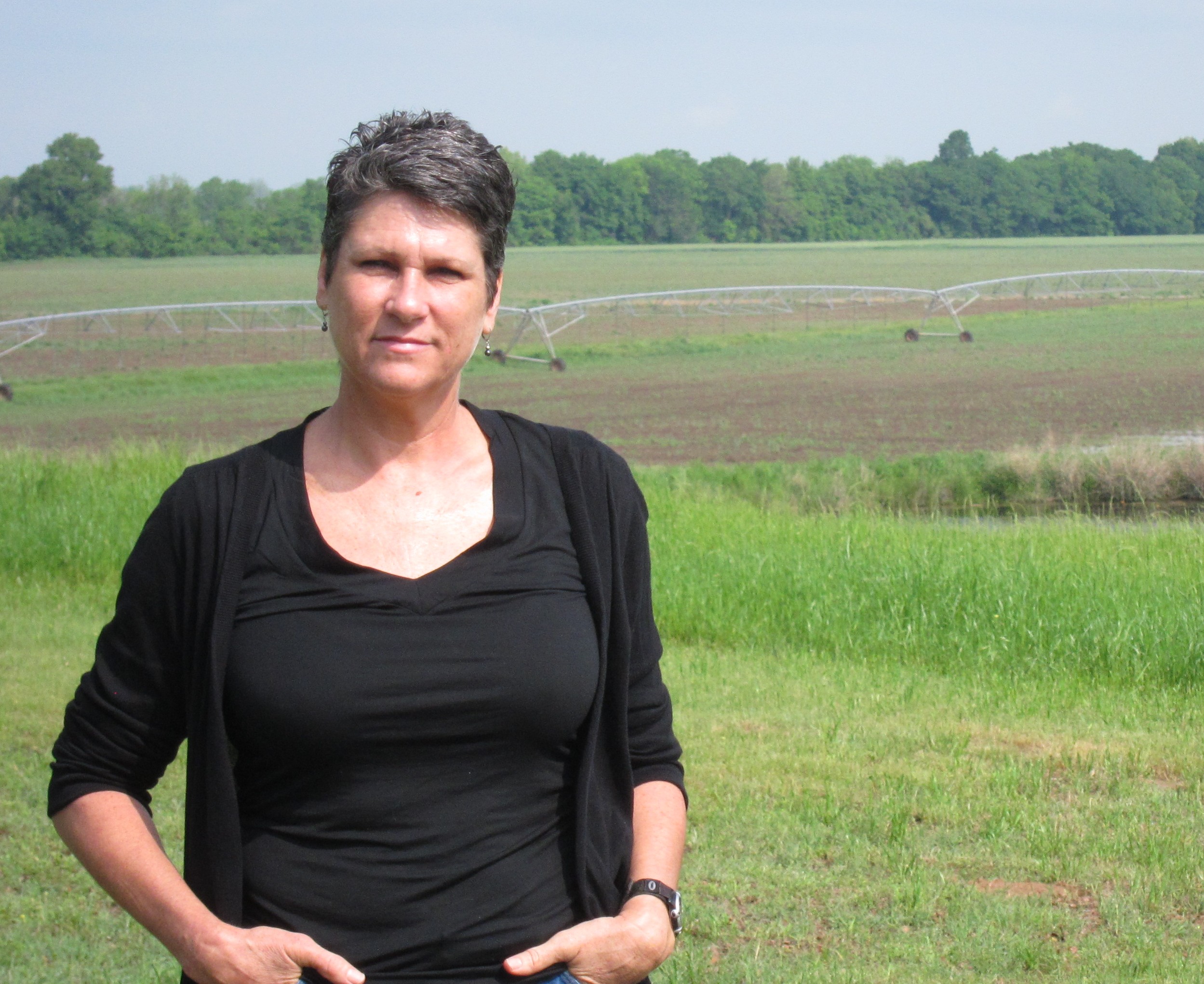What’s Next After the Keystone XL Pipeline’s Latest Court Victory

Photo by Dave Fehling/StateImpact Texas
Jefferson County Court at Law Judge Tom Rugg listens to arguments in the property rights case earlier this month.
Another court case appears to be breaking in favor of the Keystone XL pipeline, which will take heavy crude harvested in Canadian sand pits to refineries on the Texas Gulf Coast.
On Tuesday, Judge Tom Rugg of Jefferson County Court at Law 1 indicated that he believes TransCanada, the Canadian company behind the pipeline, has the right to begin building the Keystone XL on private land near Beaumont, Texas. Houston brothers David and James Holland own the land. They lease some 4,000 acres out for rice farming and ranching under a group called Texas Rice Land Partners. There are already dozens of pipelines on their land, but they feel TransCanada low-balled them with their offer to build the pipeline across it. The company is trying to use eminent domain to go ahead and build it anyways.
But they can’t take the land just yet. The writ of possession — the ruling that would give TransCanada the right to seize the land — hasn’t been issued. That will likely come down in a hearing Friday, according to the Judge.
“If the bond issues are sorted out, I believe under the law that the pipeline is allowed a writ of possession,” Judge Rugg tells StateImpact Texas. (Reading Judge Rugg’s ruling will make your head hurt. And he sympathizes with that. “It is such a complex thing that we’re dealing with that I just didn’t know how to make it simpler,” the judge says.)
Those bond issues that will be addressed Friday deal with how much TransCanada needs to put up in a bond. That’s a payment that TransCanada sets aside in case they ultimately lose their court battle against the landowners to cover damage from construction of the pipeline. Right now that bond is set at $5,000. And the landowners feel that isn’t enough.
‘Here’s Where it Gets Troublesome’
There’s a lot of uncharted water here in challenging the bond amount, according to Judge Rugg. “Here’s where it gets a little troublesome,” Judge Rugg says. “This is an area that has almost never been litigated in the history of condemnation litigation in the state.” And that’s just the beginning.
Texas is in a bit of a bind when it comes to landowners’ rights and the pipeline industry. Massive booms in drilling for oil and gas — in Texas and many other parts of the country — has meant that there’s a glut of fuel that needs to be moved to refineries on the Gulf Coast. Arguably, the safest and most cost-effective way to do that is through pipelines.
Most pipelines are able to reach agreements with landowners to compensate them for an easement on their land. This is typically a one-time payment good for the life of the pipeline. But if a landowner doesn’t want the pipeline on their land, or doesn’t like the offer from the pipeline, the company can use eminent domain. And that’s where things get tricky.
To get eminent domain, all a pipeline company has to do is check a box on a two-page form to the Railroad Commission of Texas, which oversees drilling and pipelines in the state. The pipeline company says they are a “common carrier,” a project for the public good, and is entitled to build their project on private land. TransCanada has used eminent domain against over a hundred landowners in Texas to build their Keystone XL pipeline. “What’s going on right now clearly doesn’t provide any confidence in a determination that a pipeline does or does not enjoy common carrier status,” Judge Rugg says.
New Precedents for Old Conflicts
But last year, in a decision that’s been reaffirmed twice, the Texas Supreme Court said that wasn’t good enough. In Texas Rice Land Partners vs Denbury Green, the Court found that Denbury hadn’t adequately proved their right to use eminent domain to build a carbon dioxide pipeline on the Hollands’ land.
“We have long held that the ultimate question of whether a particular [pipeline] use is a public use is a judicial question to be decided by the courts,” the court wrote in its ruling. “We have also held in numerous contexts that the [Railroad] Commission does not have authority to determine property rights.”
It’s become a closely-watched decision that is being used by other landowners fighting eminent domain claims by pipeline companies on their land, as in the case of North Texas farmer Julia Trigg Crawford. She lost her case against TransCanada’s claims of eminent domain last month but has vowed to appeal. TransCanada has already cut her fence and begun surveying her land.
So now, if you’re a private landowner with the time and money to take a pipeline company to court — whether for environmental or property reasons, or simply because you want more money for your land — you have a legal foundation to do so.
Looking to the Lege
Another question, Judge Rugg says, is if TransCanada wins against a landowner in another Texas county, like Crawford’s case, is that decision binding on cases in his court?
“I don’t know the answer to that question,” he says. Which is why he believes the state legislature needs to act in the upcoming session.
“We’re dealing in an area of the law that’s pretty unsettled,” Judge Rugg says. “I think it will ultimately take some action by the legislature. You ought to have a standard that doesn’t vary from county to county or lawsuit to lawsuit. A standard that can be applied that doesn’t generate a great deal of controversy.”
“If it doesn’t happen,” Judge Rugg says, “you’ll see more protracted litigation as companies run across landowners who are capable of financing litigation. And ultimately the Supreme Court of Texas will have to weigh in.”
How would a legislative solution to the problem work? “Ideally, I would think that there’s be an administrative body, such as the Railroad Commission, who would require much more info than they do now to make a common carrier status,” Judge Rugg says. “That decision would be binding on property owners. There’s some real problems with that approach though. Private property ownership is a constitutionally protected right in Texas.” So such a legislative solution could require an amendment to the Texas Constitution.
But even if Judge Rugg says TransCanada can start building the pipeline on Friday, the case is likely far from over. The landowners can still challenge TransCanada’s right to eminent domain in court. And they can also challenge the value of the property being condemned by the pipeline company.



